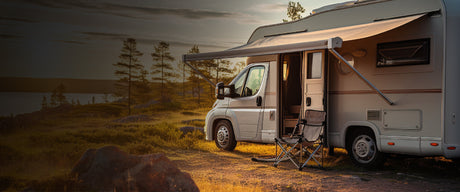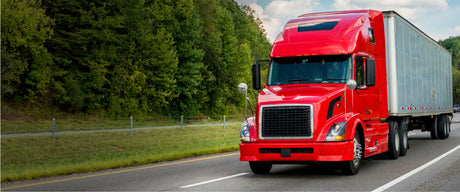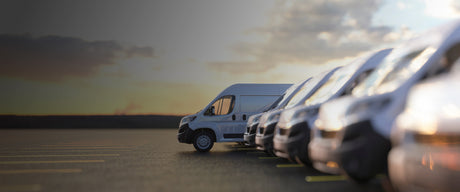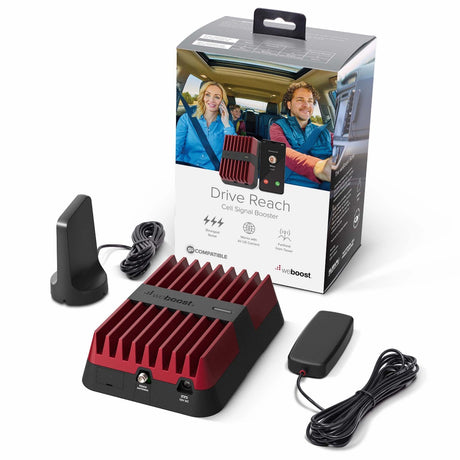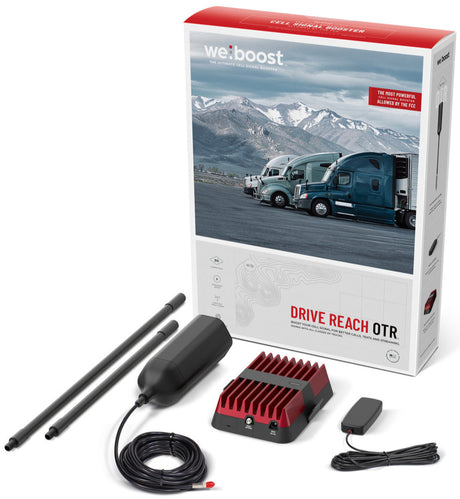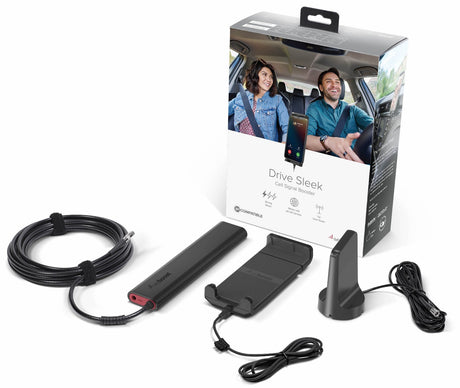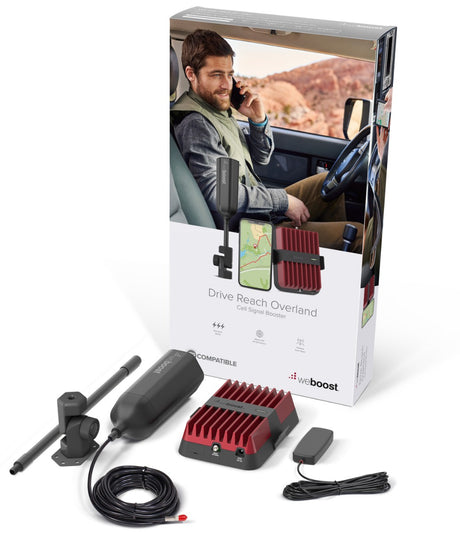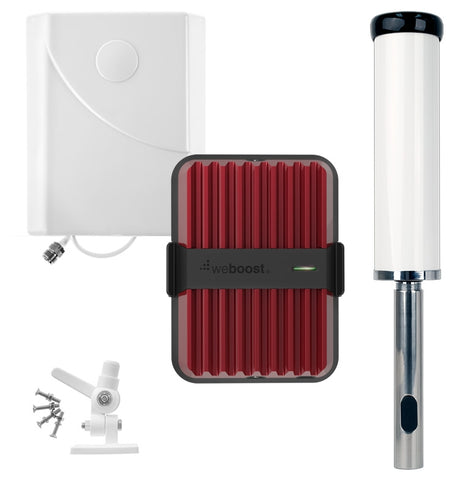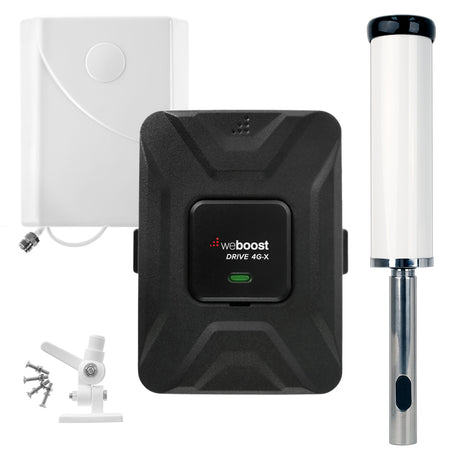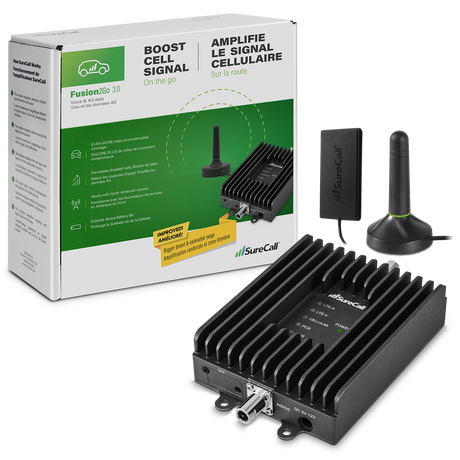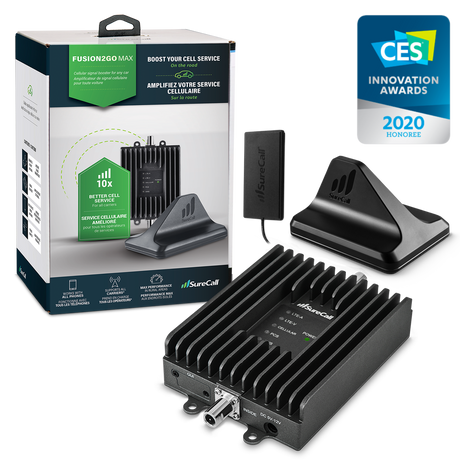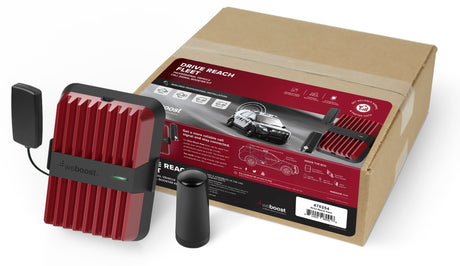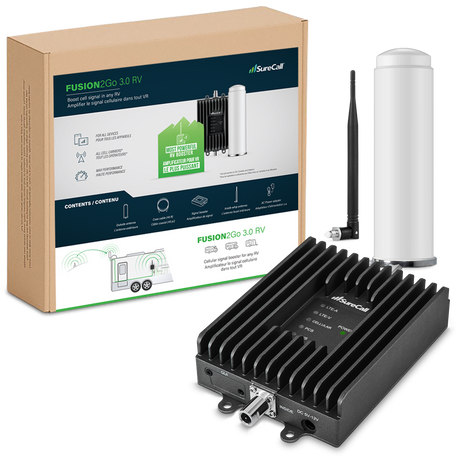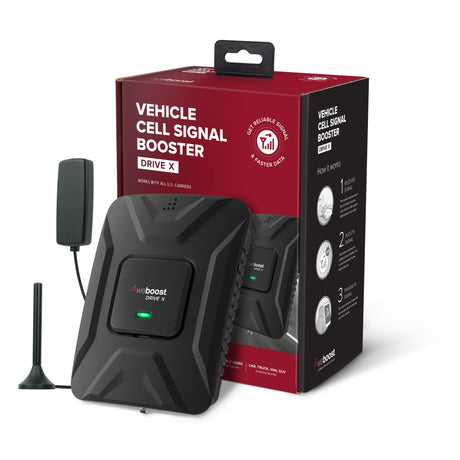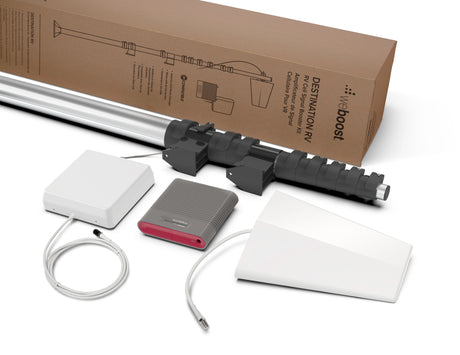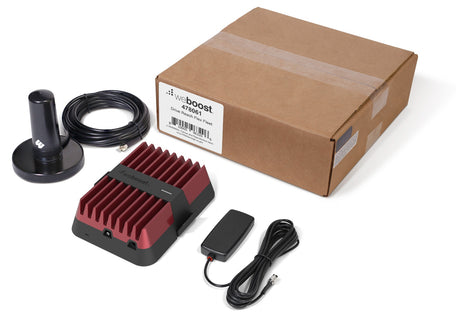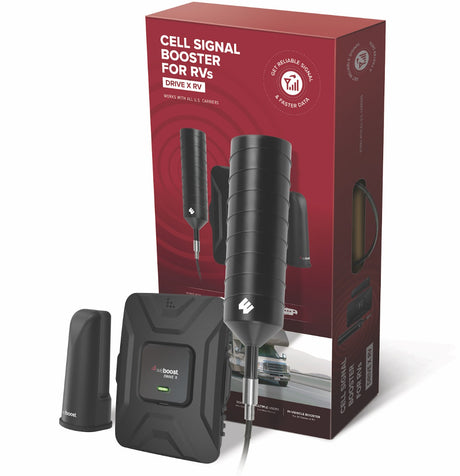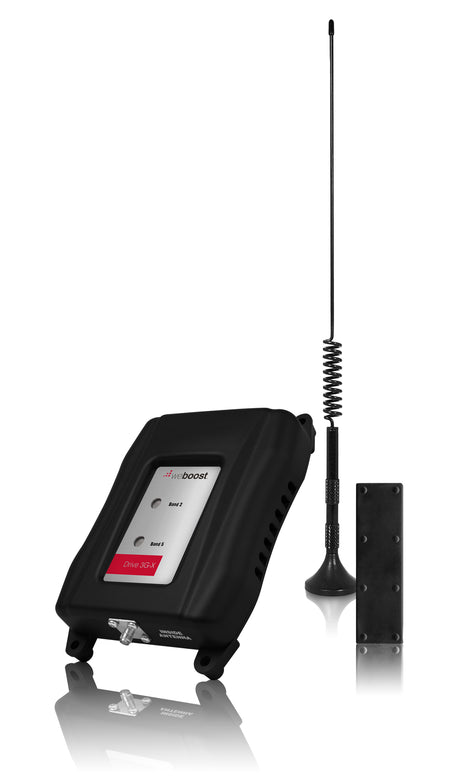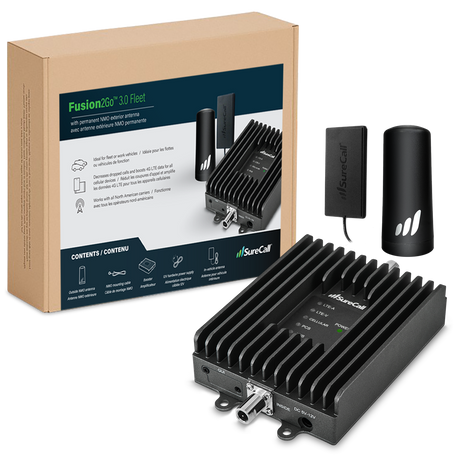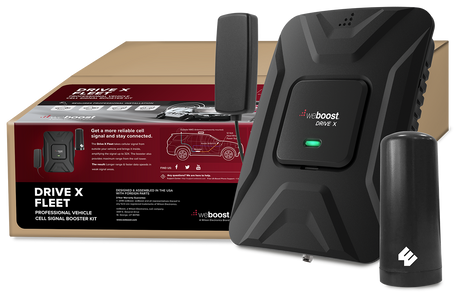Cell Boosters for Vehicles
Stay connected wherever the road takes you with UberSignal's premium vehicle cell phone signal boosters. Whether you're navigating city streets or exploring remote landscapes, our boosters ensure you maintain strong, reliable cellular connectivity. Designed for a variety of vehicles including cars, SUVs, trucks, RVs, semi-trucks, fleet vehicles, and boats, our solutions cater to your specific needs.
Our selection features top brands like weBoost, SureCall, and WilsonPro, known for their superior performance and durability. These boosters amplify weak signals, enhancing call quality, increasing data speeds, and reducing dropped calls. Installation is straightforward, and our expert support team is ready to assist you every step of the way.
FAQs
What is a vehicle cell phone signal booster?
A device that amplifies weak cellular signals to improve call quality and data speeds in vehicles.
How do I install a signal booster in my vehicle?
Installation involves placing an external antenna, connecting it to the booster unit, and positioning an internal antenna inside the vehicle. Detailed instructions are provided with each product.
Can a vehicle signal booster improve GPS navigation?
While primarily designed for cellular signals, improved reception can enhance GPS accuracy in areas with weak signals.
Do you need better cell service while commuting, adventuring, working or even relaxing? A vehicle cell phone booster is your solution for reliable calls and fast internet while you're on the move.
Browse our full selection of cell phone signal boosters and find the right fit for your needs today.




